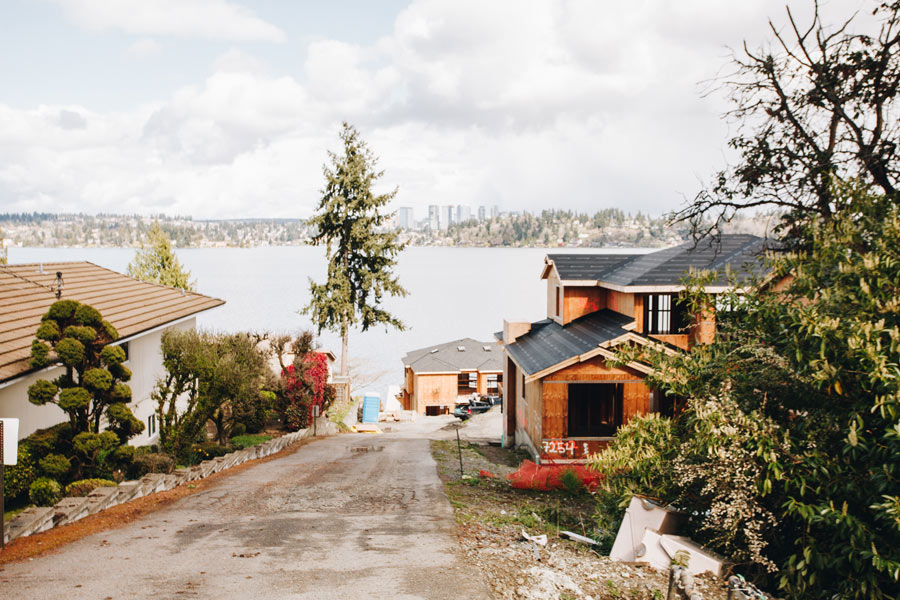Purchasing a home is a huge milestone in your life, so you’ll want to do all you can to keep it safe and protect it from unforeseen incidents that can cause damage. This is where a guide to homeowners insurance comes in handy.
Homeowners insurance offers several different policies to protect your home and your personal property. These policies will typically pay to repair or replace anything damaged by a situation or “peril” that your particular insurance policy covers. Certain homeowners insurance policies include a personal liability coverage that covers your home and property when you are responsible for an accident or injury.
Read this guide to homeowners insurance to learn more about why homeowners insurance is important and what type of homeowners insurance is right for you.
Why Get Homeowners Insurance?
Homeowners insurance is a smart choice if you’re purchasing a home. Your home is likely the most valuable asset you have, so protecting it makes sense. If you apply for and are approved for a mortgage, almost all lenders will require you to purchase homeowners insurance to protect their investment.
Homeowners insurance protects your home and personal property from loss, destruction, and accidents that would otherwise set you back thousands of dollars — or leave you with nothing at all. Many policies also include things such as payment for temporary living costs while your home goes through repairs, and personal liability protection in case an accident happens on your property.
[Related: How COVID-19 Will Impact Mortgage Rates]
What Types of Homeowners Insurance Are There?
Whether you’re looking for basic homeowners insurance or specific policies that work well for condominiums or older houses, you can easily find a policy that works best for your lifestyle and your household.
HO1
The HO1 policy is the most basic of all homeowners insurance policies and offers coverage for 10 different perils that could impact your home. These 10 perils include:
- Windstorm or hail
- Fire or lightning
- Smoke
- Riot or civil commotion
- Damage from aircraft
- Explosion
- Vandalism
- Damage from vehicles
- Theft
- Volcanic eruption
Although this basic homeowners insurance seems to cover a wide range of possible situations, if something isn’t on the list, HO1 will not cover it. For example, HO1 does not offer coverage for water damage or damage caused by earthquakes or flooding.
HO2
HO2 covers everything under the basic HO1 insurance policy, with the addition of damage caused by impact of snow or ice, sudden overflow of water or streams, sudden and accidental cracking and bulging, freezing of household systems, falling objects, and artificially generated electrical current.
HO3
HO3 is the most common homeowners insurance policy. It covers almost anything that can damage your dwelling in what is called an “open perils” policy. An exclusions list covers the guidelines and restrictions for what this policy covers. If anything on the exclusions list causes damage, HO3 will not cover it.
Here is what HO3 homeowners insurance does not cover:
- Ordinance or law
- Government action
- War
- Earth movement
- Nuclear hazard
- Neglect
- Water damage from flooding or sewer backups
- Settling, shrinking, bulging, or expanding of parts of your foundation or walls
- Power failure
- Intentional loss
- Theft to a dwelling under construction
- Smog, rust, or other corrosion
- Smoke from agricultural smudging and industrial operations
- Discharge, dispersal, and seepage of pollutants
- Wear and tear
- Mold, fungus, or wet rot
- Mechanical breakdown
- Bird, vermin, rodents, or insects
- Animals owned by the insured
HO5
HO5 is almost the same policy as HO3 because it covers everything except what is explicitly listed in the exclusion list. However, HO5 also covers the replacement of damage done to personal property as well as covering damage done to the dwelling, whereas HO3 will only cover a specific cash value designated to whatever property or personal belongings are damaged.
HO6
Condos typically come with homeowners associations, which include insurance that covers the outside shared space and the structure for every condo in that specific “block.” HO6, sometimes referred to as “walls in” insurance, is the type of homeowners insurance for the actual inside of your condo. This policy follows similar guidelines as the HO3 insurance policy.
HO8
HO8 is a less commonly used homeowners insurance specifically designed for older homes. This policy ensures that old homes that would otherwise be very difficult if not impossible to replace are covered at market — or actual cash — value. HO8 homeowners insurance works on a named peril basis and covers the 10 perils covered under HO1.
Note: HO4 insurance policies (more commonly known as renters insurance) apply only to renters, and HO7 insurance policies apply only to mobile and manufactured homes. Neither of these policy types fall under regular homeowners insurance coverage.
[Related: Guide to Buying a Home in Seattle]
Homeowners Insurance in Washington State
Here are some facts about homeowners insurance in Washington state:
- Washington state has very low homeowners insurance premiums compared to the national average, which is $1,228.
- The annual average homeowners insurance premium in Washington is $653.
- One of the top concerns for homeowners is flooding, since Washington state is known for a rainy and wet climate.
- Since most policies don’t cover flooding, looking for the policy with the broadest coverage and possibilities for add-on coverages is essential when shopping around for insurance in Washington state.
- The top insurance companies in Washington are State Farm, Nationwide, Liberty Mutual, and Farmers Insurance.
From helping you prepare to apply for a mortgage loan to being your guide to homeowners insurance, and everything in between, Seattle Mortgage Planners is ready to help you on your journey toward becoming a homeowner in any way we can. Contact us today!

